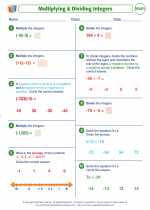Discrete Quantities
Discrete quantities refer to values that are distinct and separate from each other. In mathematics, discrete quantities are typically represented by whole numbers or integers, and they do not have any values in between. This is in contrast to continuous quantities, which can take on any value within a certain range.
Examples of discrete quantities include the number of students in a classroom, the number of cars in a parking lot, or the number of books on a shelf. These values are all whole numbers and cannot be broken down into smaller parts.
Key Concepts
- Whole Numbers: Discrete quantities are often represented by whole numbers, which are numbers without any fractions or decimals.
- Counting: Discrete quantities are often counted or enumerated, as they represent individual items or units.
- Probability: Discrete quantities are important in the field of probability, as they are used to represent the outcomes of events that can be counted.
Study Guide
When studying discrete quantities, it's important to understand the following key points:
- Identify examples of discrete quantities in everyday situations.
- Practice counting and enumerating discrete quantities.
- Understand the difference between discrete and continuous quantities.
- Learn how to represent and manipulate discrete quantities in mathematical expressions and equations.
By mastering these concepts, you will be able to work with and understand discrete quantities in various mathematical contexts.
[Discrete Quantities] Related Worksheets and Study Guides:
.◂Math Worksheets and Study Guides Eighth Grade. Integer operations
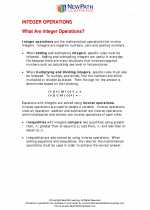
 Worksheet/Answer key
Worksheet/Answer key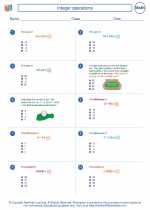
 Worksheet/Answer key
Worksheet/Answer key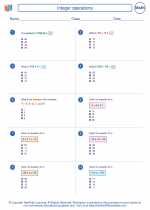
 Worksheet/Answer key
Worksheet/Answer key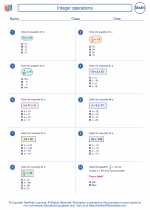
 Worksheet/Answer key
Worksheet/Answer key